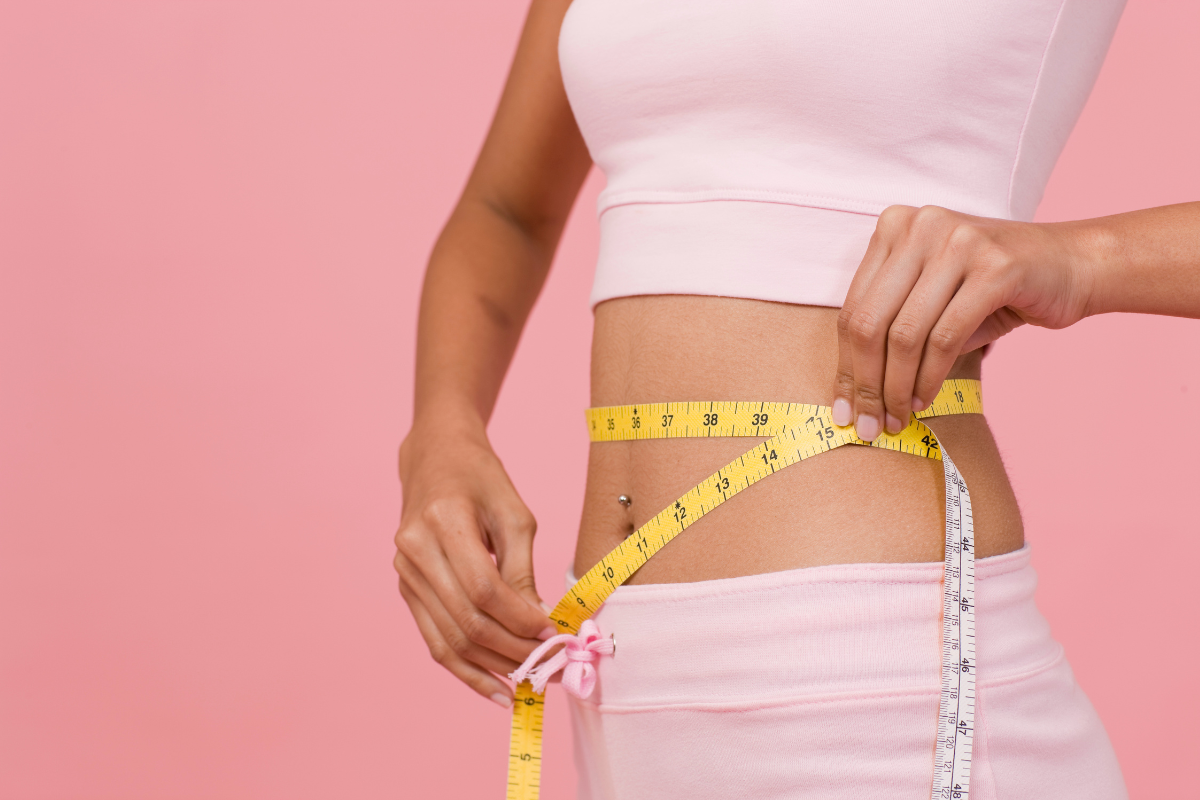Keto diet, collagen & MCT fat - lose weight

Keto diet, collagen & MCT fat - lose weight
The ketogenic diet involves consuming a very small amount of carbohydrates and replacing them with fat to help the body burn fat for energy. Health benefits may include weight loss and reduced risk of certain diseases. In other words, it can be easier to lose weight when you reduce the proportion of carbohydrates in your diet, without having to count calories!
What is a ketogenic diet, keto diet or keto diet?
The ketogenic diet is a very low-carb, high-fat diet that has many similarities to Atkins and the low-carb diet. It is about drastically reducing carbohydrate intake and replacing it with fat. This reduction in carbohydrates puts your body into a metabolic state called ketosis.
When this happens, your body becomes incredibly efficient at burning fat for energy. It also converts fat into ketones in the liver, which can provide energy for the brain. The ketogenic diet can contribute to significant reductions in blood sugar levels and insulin levels. This, along with the increased ketones, has some health benefits.
The ketogenic diet (or keto diet, alternatively keto diet) is a low-carbohydrate, high-fat diet that offers many health benefits. In fact, many studies show that this type of diet can help you lose weight and improve your health. A keto diet may even have benefits in diabetes, cancer, epilepsy and Alzheimer's disease.
Different types of ketogenic diets?
There are several versions of the ketogenic diet, including:
Standard Ketogenic Diet (SKD): This is a very low carbohydrate, moderate protein and high fat diet. It usually contains 70% fat, 20% protein and only 10% carbohydrates.
Cyclic ketogenic diet (CKD): This diet involves periods of higher carbohydrate intake, for example 5 ketogenic days followed by 2 days with a higher proportion of energy from carbohydrates.
Targeted Ketogenic Diet (TKD): This diet allows carbohydrates during exercise.
High Protein Ketogenic Diet: This is similar to a regular ketogenic diet, but contains more protein. The ratio is often 60% fat, 35% protein and 5% carbohydrates.
However, only the regular and protein-rich ketogenic diets have been extensively studied. Cyclical or targeted ketogenic diets are more advanced methods and are mainly used by bodybuilders or athletes.
The information in this article primarily applies to the standard ketogenic diet (SKD), although many of the same principles apply to the other versions as well.
What is ketosis?
Ketosis is a metabolic state where your body uses fat for fuel instead of carbohydrates. It occurs when you drastically reduce your consumption of carbohydrates, which limits your body's supply of glucose (sugar), which is the main source of energy for cells.
Following a ketogenic diet is the most effective way to enter ketosis. In general, this means limiting carbohydrate consumption to around 20-50 grams per day and filling up on good fats, eggs, nuts, healthy oils, meat and fish.
It is also important to moderate your protein intake. This is because protein can be converted to glucose if consumed in large amounts, which can slow your transition into ketosis. Practicing intermittent fasting can also help you get into ketosis faster. There are many different forms of intermittent fasting, but the most common method involves restricting food intake to about 8 hours per day and fasting for the remaining 16 hours.
There are blood, urine and breath tests that can help you determine if you have entered ketosis by measuring the amount of ketones produced by your body. Some symptoms may also indicate that you have entered ketosis, including increased thirst, dry mouth, increased frequency of urination, and decreased hunger or appetite.
Keto diet can help you lose weight
A ketogenic diet is an effective way to lose weight and reduce risk factors for disease. In fact, research shows that the keto diet can be just as effective for weight loss as a low-fat diet. In addition, the diet is so filling that you can lose weight without counting calories.
A review of 13 studies showed that a keto diet with a very low carbohydrate content was slightly more effective for long-term weight loss than a low-fat diet. People following the keto diet lost an average of 0.9 kg more than the group following a low-fat diet. In addition, it also led to reductions in diastolic blood pressure and triglyceride levels.
Another study of 34 older adults found that those who followed a ketogenic diet for 8 weeks lost nearly five times as much body fat as those who followed a low-fat diet.
The increased ketones, lower blood sugar levels and improved insulin sensitivity may also play a key role.
When losing weight, it is also important that the skin keeps up and does not become limp and saggy. Collagen for the skin with MCT fat is a ketogenic food supplement that contains no carbohydrates. The collagen helps maintain firm and elastic skin when losing weight. On a keto diet with the intention of losing weight, collagen + MCT fat is an optimal supplement.
Ketogenic diet for diabetes and prediabetes
Diabetes is characterized by changes in metabolism, high blood sugar and impaired insulin function. The ketogenic diet can help you lose excess fat, which is closely linked to type-2 diabetes, prediabetes and metabolic syndrome.
An older study showed that the ketogenic diet improved insulin sensitivity by as much as 75%.
A small study of women with type 2 diabetes also showed that following a keto diet for 90 days significantly reduced hemoglobin A1C levels, which is a measure of long-term blood sugar management.
Another study of 349 people with type 2 diabetes found that those who followed a ketogenic diet lost an average of 11.9 kg over a 2-year period. This is an important advantage when considering the link between weight and type 2 diabetes.
In addition, they also experienced improved blood sugar control, and the use of certain blood sugar medications decreased among participants over the course of the study.
How to get rid of prediabetes?
Through healthy eating and a 5-7 percent weight loss (if you are overweight), you can slow down or stop prediabetes. It is therefore of great importance that you think about what you can change in terms of your eating habits.
Other health benefits of a keto diet
The ketogenic diet actually originated as a tool to treat neurological disorders such as epilepsy. Studies have now shown that the diet can have benefits for a variety of health conditions:
Heart disease. The ketogenic diet can help improve risk factors such as body fat, HDL cholesterol levels (the good cholesterol), blood pressure and blood sugar.
Cancer. The diet is currently being investigated as an additional treatment for cancer, as it may help slow tumor growth.
Alzheimer's disease. The keto diet can help reduce the symptoms of Alzheimer's disease and slow its progression.
Epilepsy. Research has shown that the ketogenic diet can cause significant reductions in seizures in epileptic children.
Parkinson's disease. Although more research is needed, one study found that the diet helped improve symptoms of Parkinson's disease.
Polycystic ovary syndrome. The ketogenic diet can help reduce insulin levels, which can play a key role in polycystic ovary syndrome.
Brain damage. Some research suggests that diet can improve outcomes of traumatic brain injuries.
Keep in mind, however, that the research in many of these areas is far from clear-cut.
What foods should not be eaten on a keto diet
All foods high in carbohydrates should be limited. Here is a list of foods that must be reduced or eliminated on a ketogenic diet:
- Sugary foods: soda, fruit juice, smoothies, cake, ice cream, candy, etc.
- Grains or starches: wheat-based products, rice, pasta, cereals, etc.
- Fruit: All fruit, except small portions of berries such as strawberries etc.
- Beans or legumes: peas, kidney beans, lentils, chickpeas, etc.
- Root vegetables and k: potatoes, sweet potatoes, carrots, parsnips, etc.
- Low-fat products or diet products: low-fat mayonnaise, salad dressings and condiments
- Some condiments or sauces: barbecue sauce, honey mustard, teriyaki sauce, ketchup, etc.
- Unhealthy fats: processed vegetable oils, mayonnaise, etc.
- Alcohol: Beer, wine, spirits, mixed drinks
Good food on a keto diet
You should base the majority of your meals on these foods:
- Meat: red meat, chicken and turkey
- Fatty fish: Salmon, trout, tuna and mackerel
- Egg
- Butter and cream
- Cheese
- Nuts and seeds: almonds, walnuts, flax seeds, pumpkin seeds, chia seeds, etc.
- Healthy oils: extra virgin olive oil and avocado oil
- Avocado: whole avocado or freshly made guacamole
- Vegetables with little carbohydrates: green vegetables, tomatoes, onions, peppers, etc.
- Spices and herbs
Meal plan for a week of ketogenic meals
Monday
Breakfast: Egg omelette with tomatoes + coffee with a scoop of collagen with MCT fat - Collgen keto diet + MCT
Lunch: Chicken salad with olive oil, feta cheese and olives
Dinner: Salmon with asparagus cooked in butter
Tuesday
Breakfast: Egg, tomato, basil and spinach omelette
Lunch: Smoothie with almond milk, peanut butter, cocoa powder and Collagen with MCT fat from coconut and sliced strawberries
Dinner: Steak with green salad and red onion
Wednesday
Breakfast: Chia pudding made from collagen with MCT fat topped with coconut and blackberries
Lunch: Avocado and shrimp salad
Dinner: Steak with parmesan cheese, broccoli and salad
Thursday
Breakfast: Omelet with avocado, salsa, peppers, onions and spices + coffee with a scoop of collagen with MCT fat - Collgen keto diet + MCT
Lunch: Tuna salad with nuts made from green salad and red onion and celery
Dinner: Chicken stuffed with pesto and cream cheese and grilled zucchini
Friday
Breakfast: Greek yogurt with peanut butter, cocoa powder and berries, coffee with a scoop of collagen with MCT fat - Collgen keto diet + MCT
Lunch: Green salad with minced meat and sliced paprika
Dinner: Cauliflower and mixed vegetables in the oven with salmon
Saturday
Breakfast: Smoothie with collagen and MCT fat made from almond milk and strawberries
Lunch: Zucchini and beetroot with chicken in the oven
Dinner: White fish cooked in olive oil with kale and roasted pine nuts
Sunday
Breakfast: fried egg with mushrooms + coffee with a scoop of collagen with MCT fat - Collgen keto diet + MCT
Lunch: Sesame chicken and broccoli in oven with kale and olive oil
dinner: Squash with meat patties
Always try to vary the ingredients such as vegetables and meat, as each type provides different nutrients and health benefits. You can eat a wide variety of tasty and nutritious meals on a ketogenic diet. It's not just meat and fat. Vegetables are also an important part of the diet.
Healthy Keto Snacks
If you get hungry between meals, it's perfectly fine to eat something like:
- fatty meat or fish
- cheese
- a handful of nuts or seeds
- Oliver
- Egg
- 90% dark chocolate
- Greek yogurt mixed with cocoa powder and nuts
- Pepper
- Strawberries and plain cottage cheese
- Celery with salsa and guacamole
- Dried meat such as reindeer or dried beef
- Smaller portions of leftover meals
- Good snacks on a keto diet include chunks of meat, cheese, olives, boiled eggs, nuts, raw vegetables and dark chocolate
Keto diet and some tips
Although getting started on the ketogenic diet can be a challenge, there are several tips and tricks you can use to make it easier.
- Start by familiarizing yourself with what different foods contain and checking protein, fat, carbohydrates and fiber to determine how your favorite food can fit into your diet.
- Planning your meals in advance can also be beneficial and can help you save extra time during the week.
- Many websites, food blogs, apps, and cookbooks also offer keto-friendly recipes and meal ideas that you can use to build your own custom menu.
- Make keto-friendly meals ready and freeze. Perfect to use on days when you have less time.
- When you go to social gatherings or visit family and friends, you can eat anything that does not contain a significant amount of carbohydrates.
-
Have a dietary supplement with MCT fat along with collagen at home. The collagen supplement is easy to mix into a chia pudding, smoothie or in your coffee. Collagen is a protein and helps you increase your daily protein intake and is both quick and easy to make!
Tips when you eat out and want to eat a keto diet
Many restaurant meals can be made keto-friendly. Most restaurants offer some kind of meat or fish-based dish. Order this and replace carbohydrate-rich food with extra vegetables.
- Egg-based meals are also a good option, such as an omelette or eggs.
- Another favorite is hamburgers without bread. You can also replace the fries with vegetables instead. Add extra avocado, cheese or eggs.
- In Mexican restaurants, you can enjoy all kinds of meat with extra cheese, guacamole, salsa and sour cream.
- For dessert, you can ask for a mixed cheese platter or berries with cream.
Are there any side effects to a keto diet?
Although the ketogenic diet is usually safe for most healthy people, there may be some initial side effects while your body adjusts to the new diet.
Reported side effects include diarrhea, constipation, and vomiting. Other less common symptoms include:
- low energy and mental function
- increased hunger
- sleep problems
- nausea
- indigestion
- reduced exercise performance
To minimize this, you can try a regular low-carb diet for the first few weeks. This can teach your body to burn more fat before you completely eliminate carbohydrates. On a ketogenic diet, you can always eat until you're full. Usually, a ketogenic diet helps you lose weight without counting calories.
Risks of the keto diet
Sticking to the keto diet long-term can have some negative effects:
- Low protein content in the blood
- Extra fat in the liver
- Kidney stone
- Lack of micronutrients
- Dietary supplements with collagen and MCT fat on a keto diet
Common questions and answers on a keto diet
Here are the answers to some of the most common questions about a keto diet.
1. Can I ever eat carbs again?
Yes. However, it is important to reduce your carbohydrate intake significantly at first. After the first 2 to 3 months you can eat carbs on special occasions - just go back to the diet right after.
2. Will I lose muscle?
There is a risk of losing some muscle with all diets. However, protein intake from things like collagen and high levels of ketones can help minimize muscle loss, especially if you go to the gym and do strength training.
3. Can I build muscle on a ketogenic diet?
Yes, but it may not work as well as a moderate carb diet.
4. How much protein can I eat?
Protein should be moderate, as a very high intake can increase insulin levels and lower ketone levels. About 35% of total calorie intake should come from proteins, no more.
5. What if I am constantly tired, weak or exhausted?
You may not be in full ketosis or using fats and ketones efficiently. To counteract this, you should lower your carbohydrate intake and review the points above.
6. My urine smells "fruity". Why is that so?
Don't worry. This is simply due to the excretion of byproducts created during ketosis.
7. My breath smells. What can I do?
This is a common side effect. Try drinking naturally flavored water or chewing sugar-free gum.
8. I have heard that ketosis is extremely dangerous. Is this true?
People often confuse ketosis with ketoacidosis. Ketoacidosis is dangerous, but ketosis on a ketogenic diet is usually fine for healthy people.
9. I have digestive problems and diarrhea. What can I do?
This common side effect usually goes away after 3 to 4 weeks. If it persists, try eating more high-fiber vegetables or taking a stomach supplement with L-glutamine and prebiotics. Collagen supplement completely without carbohydrates but with extra added fibers for a functioning stomach and intestines.
In summary about a keto diet
A ketogenic diet may be good for people who:
- are overweight and want to lose weight without counting calories
- have diabetes
- want to improve their metabolic health
It may be less suitable for elite athletes or those looking to build muscle or gain weight. This diet may also not be sustainable for some people's lifestyles and preferences.







